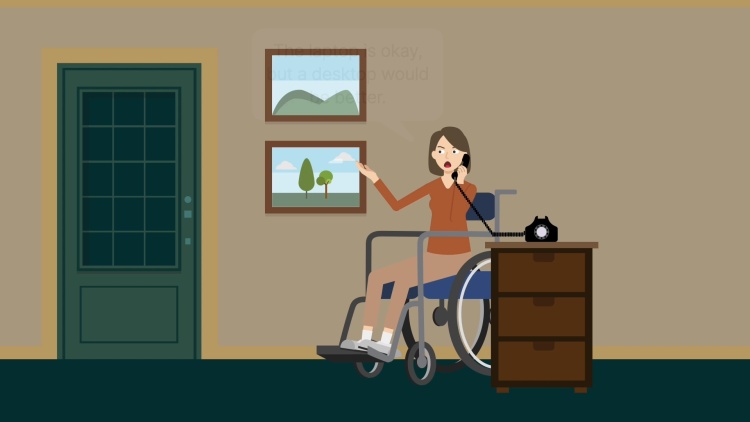Vande Zande v. State of Wisconsin Department of Administration
United States Court of Appeals for the Seventh Circuit
44 F.3d 538 (1995)
- Written by Nan Futrell, JD
Facts
Lori Vande Zande (plaintiff) worked for the Wisconsin state administration department’s housing division (the Department) (defendant) for three years, performing clerical-office duties. Vande Zande was paralyzed from the waist down because of a spinal cord tumor. Vande Zande’s paralysis caused her to experience periodic pressure ulcers that sometimes required her to stay home for several weeks. The Department took numerous steps to accommodate Vande Zande’s paralysis: it modified bathrooms and a locker room, installed a step ramp, provided adjustable office furniture, furnished her with a cot, rearranged her schedule as needed for medical appointments, and granted other special requests that Vande Zande made. When a particular bout of ulcers required Vande Zande to stay home for eight weeks, she asked the Department for a personal desktop computer so she could work full-time from home. The request was denied. Vande Zande successfully worked from home for all but 16.5 hours of the eight weeks. Vande Zande used 16.5 hours of sick leave to make up that time. Vande Zande subsequently sued the Department under the Americans with Disabilities Act (ADA), 42 U.S.C. § 12101 et seq., alleging that it failed its duty to reasonably accommodate her disability by denying her request for a desktop computer and causing her to use sick leave. Vande Zande also complained that the Department failed to lower sinks and counters in office break rooms from 36 to 34 inches, which would have made them wheelchair accessible. The district court granted summary judgment for the Department. Vande Zande appealed.
Rule of Law
Issue
Holding and Reasoning (Posner, J.)
What to do next…
Here's why 907,000 law students have relied on our case briefs:
- Written by law professors and practitioners, not other law students. 47,100 briefs, keyed to 996 casebooks. Top-notch customer support.
- The right amount of information, includes the facts, issues, rule of law, holding and reasoning, and any concurrences and dissents.
- Access in your classes, works on your mobile and tablet. Massive library of related video lessons and high quality multiple-choice questions.
- Easy to use, uniform format for every case brief. Written in plain English, not in legalese. Our briefs summarize and simplify; they don’t just repeat the court’s language.





